
The Timeless Charm of Plovdiv Region
Nestled in the heart of Bulgaria, the Plovdiv Region is a captivating blend of ancient history and vibrant modern culture. As one of the oldest continuously inhabited cities in the world, Plovdiv boasts an array of historical landmarks, from Roman amphitheaters to Ottoman-era mosques. Wander through its cobbled streets and marvel at the beautifully preserved architecture that tells stories of bygone eras. Beyond its rich historical tapestry, the region is also famous for its lively arts scene. The Kapana Creative District, with its colorful street art and bustling cafes, is a haven for artists and creatives. Plovdiv was the European Capital of Culture in 2019, a testament to its thriving cultural landscape that continues to attract visitors from around the globe. Nature enthusiasts will find solace in the picturesque Rhodope Mountains, which offer stunning hiking trails and breathtaking views. The region’s fertile plains are also home to some of Bulgaria's finest vineyards, where you can taste exquisite local wines. Whether you're a history buff, an art lover, or an adventure seeker, the Plovdiv Region has something special to offer everyone.
Local tips in Plovdiv Region
- Visit the Ancient Theatre of Philippopolis for a glimpse into Plovdiv's Roman past.
- Explore the Kapana Creative District for unique shopping and dining experiences.
- Take a day trip to the Rhodope Mountains for hiking and nature exploration.
- Try local wines at one of the region’s vineyards for an authentic taste of Bulgarian viticulture.
- Visit during the Plovdiv International Fair if you want to experience local culture and trade exhibitions.
The Timeless Charm of Plovdiv Region
Nestled in the heart of Bulgaria, the Plovdiv Region is a captivating blend of ancient history and vibrant modern culture. As one of the oldest continuously inhabited cities in the world, Plovdiv boasts an array of historical landmarks, from Roman amphitheaters to Ottoman-era mosques. Wander through its cobbled streets and marvel at the beautifully preserved architecture that tells stories of bygone eras. Beyond its rich historical tapestry, the region is also famous for its lively arts scene. The Kapana Creative District, with its colorful street art and bustling cafes, is a haven for artists and creatives. Plovdiv was the European Capital of Culture in 2019, a testament to its thriving cultural landscape that continues to attract visitors from around the globe. Nature enthusiasts will find solace in the picturesque Rhodope Mountains, which offer stunning hiking trails and breathtaking views. The region’s fertile plains are also home to some of Bulgaria's finest vineyards, where you can taste exquisite local wines. Whether you're a history buff, an art lover, or an adventure seeker, the Plovdiv Region has something special to offer everyone.
When is the best time to go to Plovdiv Region?
Iconic landmarks you can’t miss
Ancient Theatre of Philippopolis
Step back in time at Plovdiv's Ancient Theatre, a remarkably preserved Roman landmark hosting captivating performances amidst stunning historical architecture.
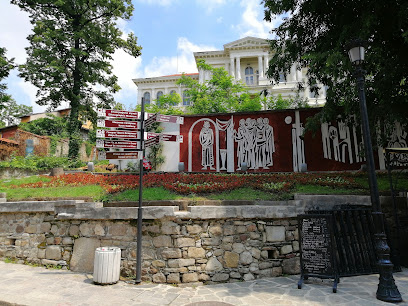
“Tsar Simeon Garden” Park
Escape to Plovdiv's enchanting Tsar Simeon Garden: a green oasis with musical fountains, historic charm, and tranquil beauty for all ages.

Singing Fountain
Experience the enchanting water ballet of the Singing Fountain in Plovdiv, where music and lights create magical moments for every visitor.
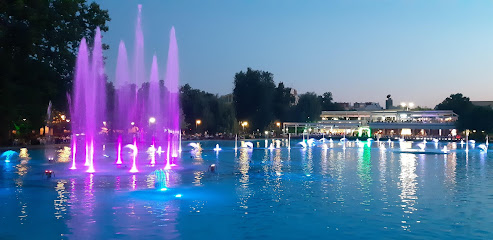
Ancient Stadium of Philipopolis
Discover the grandeur of the Roman Empire at the Ancient Stadium of Philipopolis, a historical gem beneath the bustling streets of Plovdiv.
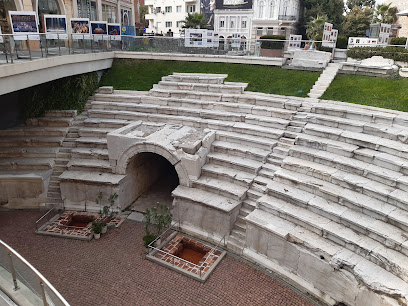
Asen's Fortress
Discover the majestic Asen's Fortress in Asenovgrad, Bulgaria, a historical gem offering breathtaking views and a journey through time.
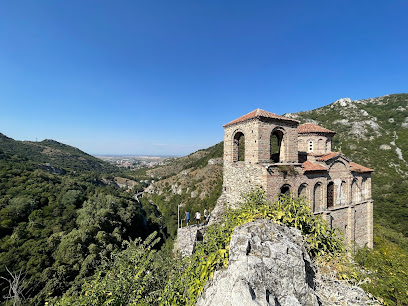
Youth Hill
Discover the natural beauty and cultural richness of Youth Hill in Plovdiv, a serene park perfect for relaxation and exploration.
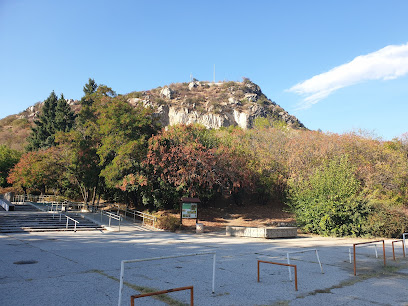
Old Town of Plovdiv
Explore the enchanting Old Town of Plovdiv, where history, culture, and stunning architecture intertwine in Bulgaria's oldest city.
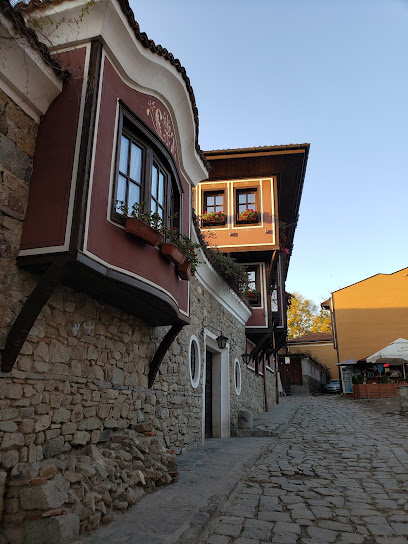
International Fair Plovdiv
Explore Bulgaria's premier trade and exhibition center, a historic landmark fostering global business connections since 1892.
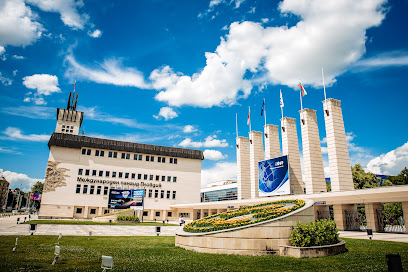
Nebet Tepe
Explore Nebet Tepe, Plovdiv's ancient hill offering breathtaking views and a deep dive into Bulgaria's rich history.
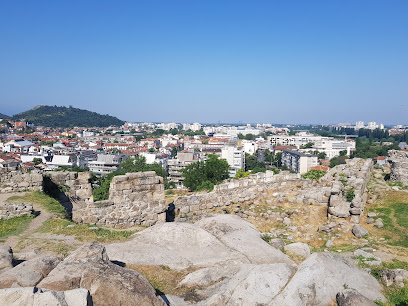
Museum of Natural Sciences
Explore Bulgaria's natural wonders: From vibrant aquariums to fascinating geological displays at Plovdiv's Museum of Natural Sciences.
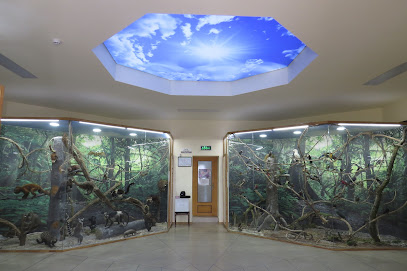
Sahat Tepe - Danov hill
Discover panoramic views and a historic clock tower atop Sahat Tepe, one of Plovdiv's most beloved hills, offering a tranquil escape in the city center.
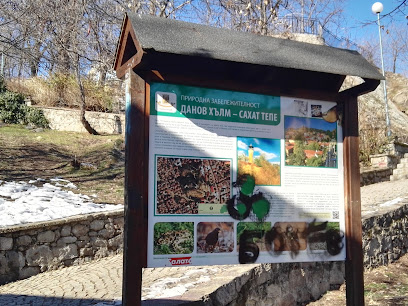
Regional Ethnographic Museum Plovdiv
Discover the essence of Bulgarian culture at the Regional Ethnographic Museum in Plovdiv, where history and tradition come alive through diverse exhibits.
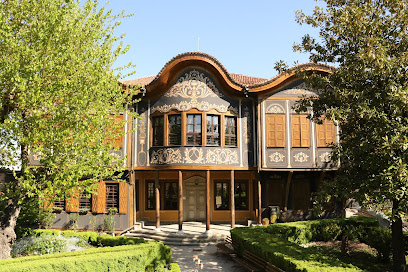
Free Plovdiv Tour
Explore Plovdiv's ancient history and vibrant culture with a free walking tour of its iconic landmarks and hidden gems.
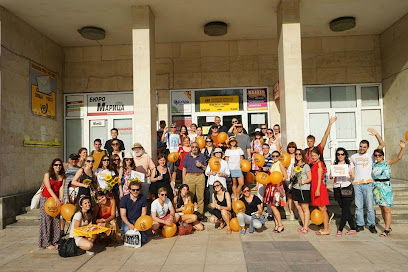
Bishop’s Basilica of Philippopolis
Explore the captivating mosaics and rich history at the Bishop’s Basilica of Philippopolis, a cultural gem in the heart of Plovdiv, Bulgaria.
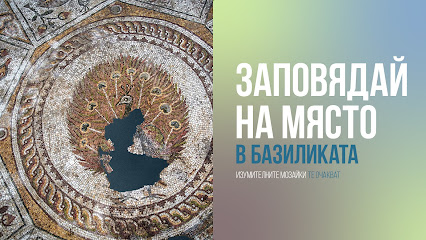
Monument of Unification
A historical landmark in Plovdiv commemorating Bulgaria's unification, symbolizing unity and resilience in the heart of the city.
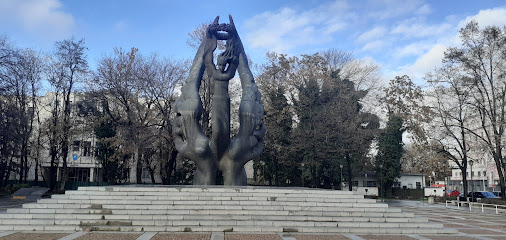
Unmissable attractions to see
Youth Hill
Explore Youth Hill in Plovdiv, a stunning park with scenic views and recreational activities for everyone.
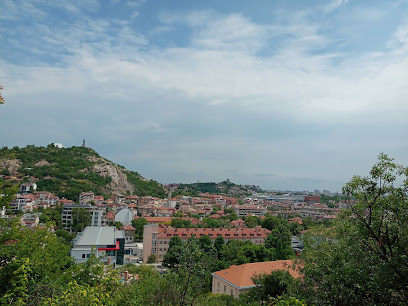
White birches
Escape to nature in Plovdiv's White Birches Park: pathways, picnics, and picturesque views await in this tranquil haven.
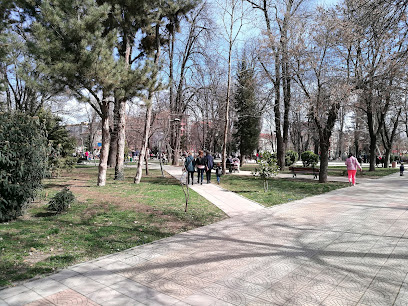
City Park
Escape to Plovdiv's City Park: A historic green space offering tranquility, art, and a touch of local culture in the heart of the city.
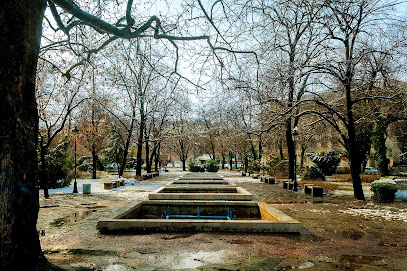
Fountain
Discover the enchanting Fountain of Plovdiv, a vibrant symbol of the city's rich heritage and a perfect spot for relaxation and photography.
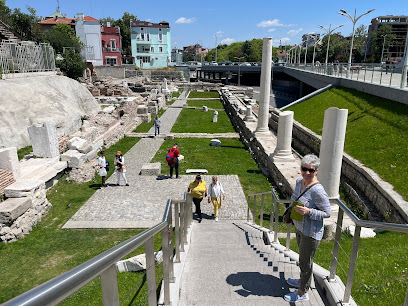
Plovdiv Regional History Museum
Discover Plovdiv Regional History Museum: a fascinating journey through Bulgaria's rich cultural heritage and historical narrative.
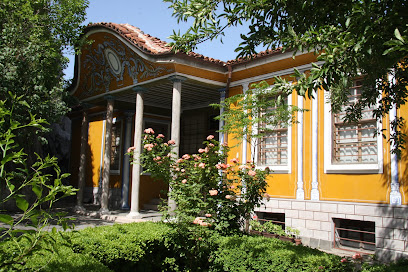
Roman aqueduct
Explore the Roman Aqueduct in Plovdiv, a marvel of ancient engineering and a testament to the rich history of Philippopolis.
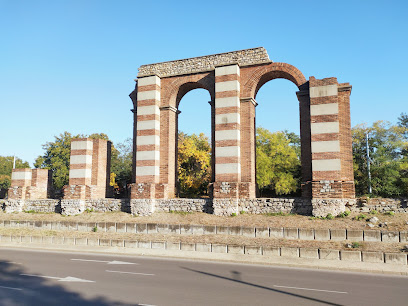
South Round Tower
Explore the South Round Tower in Plovdiv - a stunning historical landmark showcasing medieval architectural beauty and rich cultural heritage.
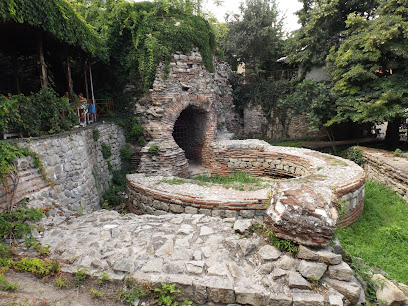
Goat
Enjoy panoramic views of Plovdiv from Goat (Halm Na Mladostta), a scenic hilltop retreat in the heart of the city.
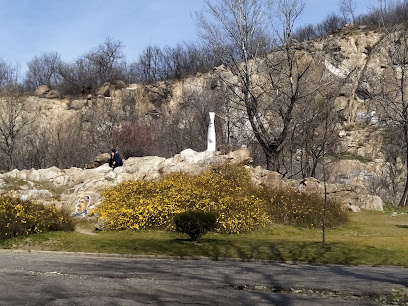
The Astronaut Alley
Discover Astronaut Alley in Plovdiv, a tribute to Soviet cosmonauts blending history, culture, and breathtaking monuments.
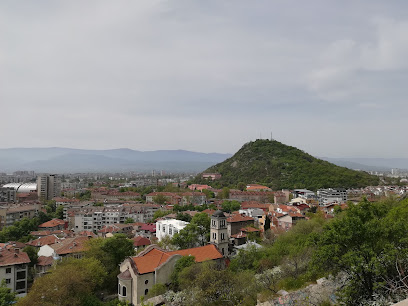
Dervish Monastery, Plovdiv
Explore the Dervish Monastery in Plovdiv's Old Town: a unique landmark blending Ottoman history and mystical Sufi traditions.
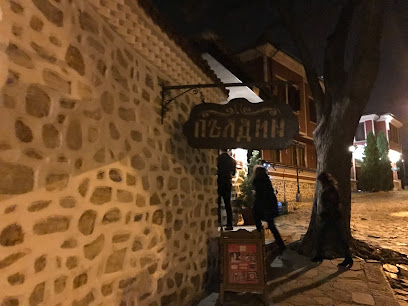
Park of Fine Arts - Парк на Изящните Изкуства
Discover Plovdiv's serene Park of Fine Arts: a blend of nature, art, and tranquility in Bulgaria's historic cultural hub.
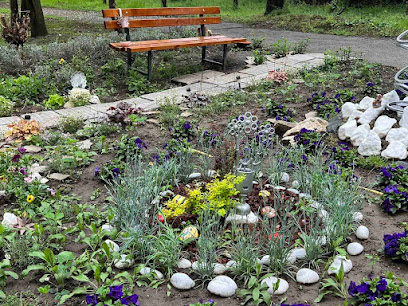
Tsanko Lavrenov Monument
Honor the legacy of a Bulgarian master at the Tsanko Lavrenov Monument, nestled in Plovdiv's enchanting Old Town.
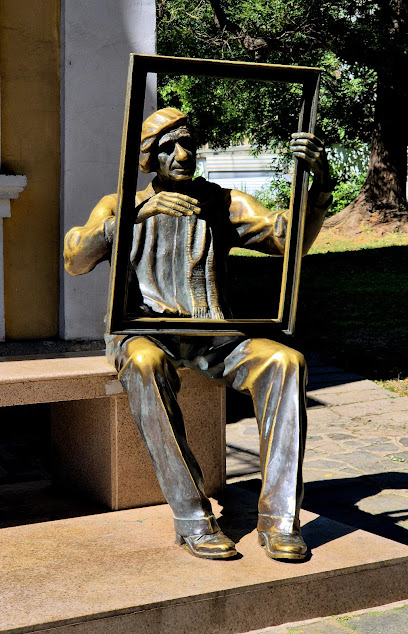
Murales de Nasimo
Explore the vibrant street art of Murales de Nasimo in Plovdiv, where creativity and culture collide in a stunning urban gallery.
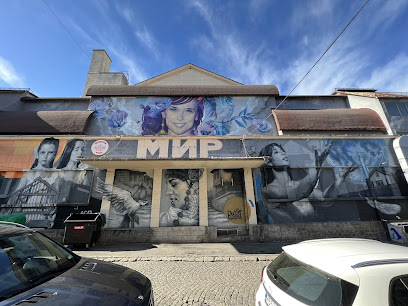
Plovediv Sign
Snap a photo at Plovdiv Sign, a modern landmark in the heart of Europe's oldest city, near the historic Staria grad.
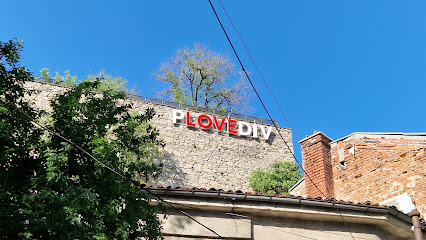
Graffiti
Explore Plovdiv's vibrant street art scene at 'Graffiti' on Otets Paisiy Street, where urban creativity meets cultural heritage.
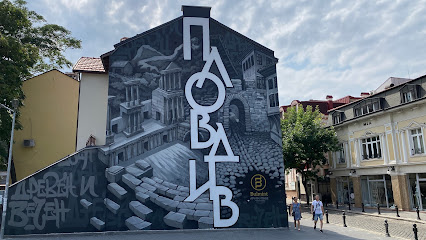
Essential places to dine
Бирария Jägerhof - Пловдив
Experience the best of Bulgarian cuisine paired with craft brews at Jägerhof Brewpub in Plovdiv.
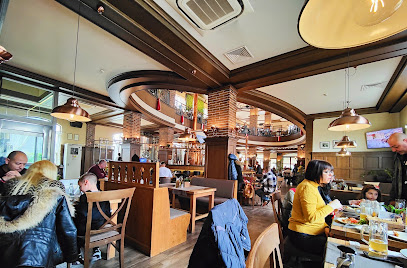
Pavaj
Discover Pavaj in Plovdiv: where traditional Bulgarian cuisine meets vibrant nightlife in the heart of Kapana.
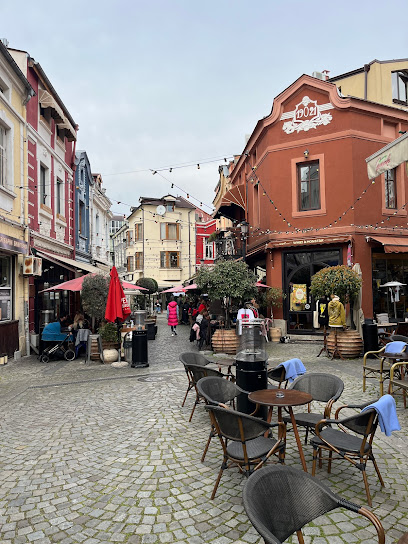
Torro Grande / Торро Гранде
Experience the best of American, Italian, and sushi cuisine at Torro Grande in Plovdiv – where flavors meet creativity.
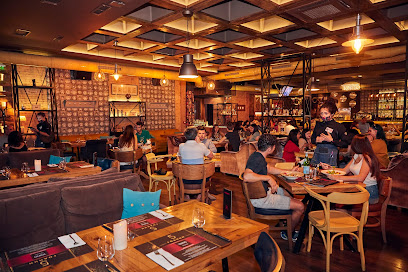
Rahat Tepe
Discover Rahat Tepe: A delightful beer garden in Plovdiv offering breathtaking views, delicious food, and a vibrant atmosphere perfect for relaxation.
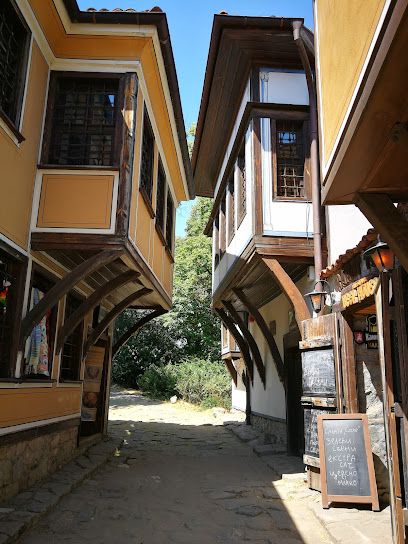
Restaurant SOUTH breeze
Experience exquisite dining at Restaurant SOUTH Breeze in Plovdiv with a delightful mix of local and international flavors.
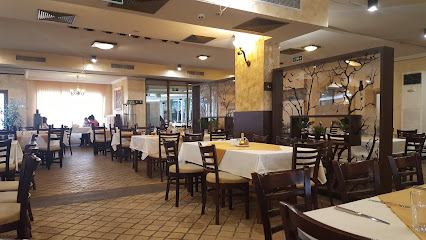
Hemingway Restaurant
Experience culinary excellence at Hemingway Restaurant in Plovdiv - where traditional flavors meet modern creativity in a charming setting.
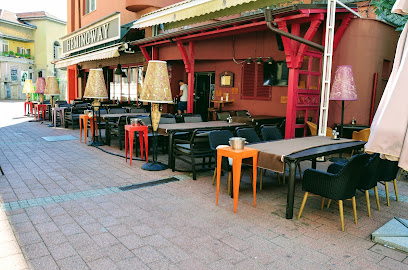
Smokini
Discover authentic Bulgarian flavors at Smokini, a charming restaurant in the heart of Plovdiv offering delicious local dishes and warm hospitality.
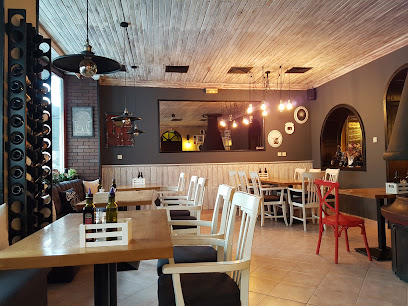
Aylyakria Restaurant
Discover the essence of Bulgarian cuisine at Aylyakria Restaurant in Plovdiv's lively Kapana district.
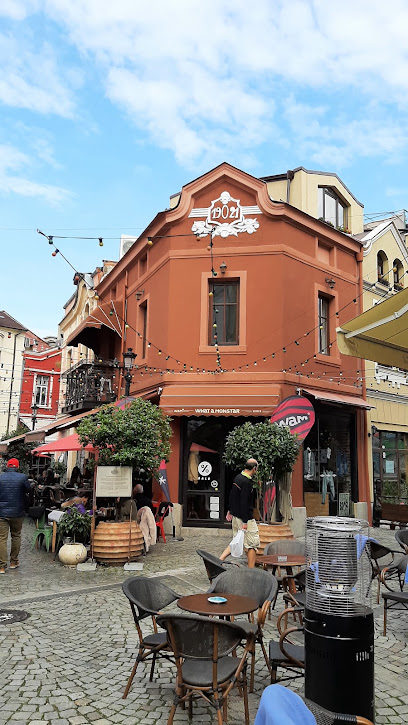
Restaurant Riviera
Experience authentic Bulgarian cuisine at Restaurant Riviera in Plovdiv - where every dish tells a story.
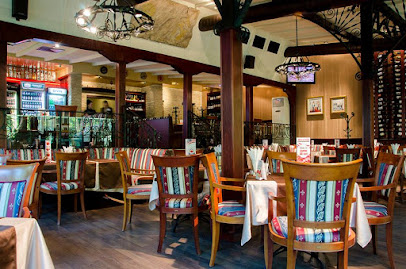
Fork and knife
Experience gourmet burgers & prime steaks at Fork and Knife in Plovdiv's vibrant Kapana district.
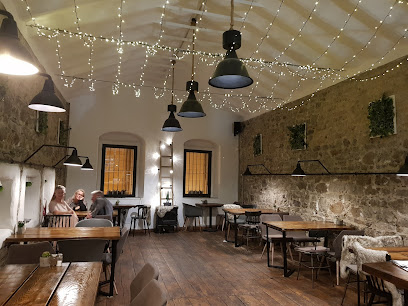
Skapto Burgers, Beers and Fries Kapana
Discover gourmet burgers and craft beers at Skapto Burgers in Plovdiv's Kapana district - where flavor meets fun!
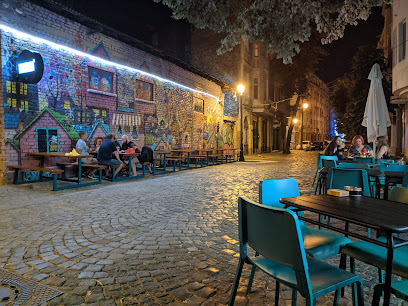
PASA Restaurant
Experience authentic Turkish flavors at PASA Restaurant in Plovdiv's vibrant Kapana district—where culinary tradition meets warm hospitality.
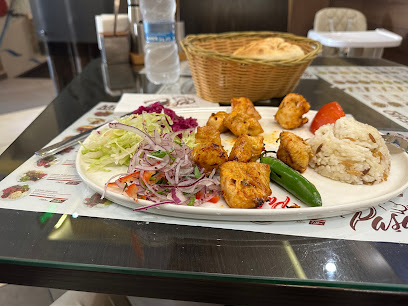
Osteria Rosmarino
Discover authentic Italian cuisine at Osteria Rosmarino in Plovdiv - where every meal is a celebration of flavor and tradition.
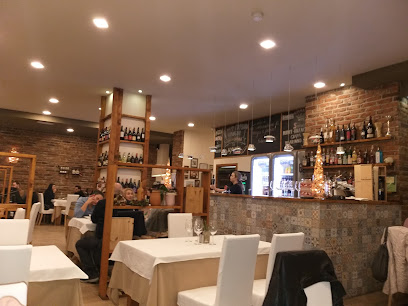
Central Park
Experience exquisite dining at Central Park in Plovdiv - where local flavors meet international cuisine in a vibrant setting.
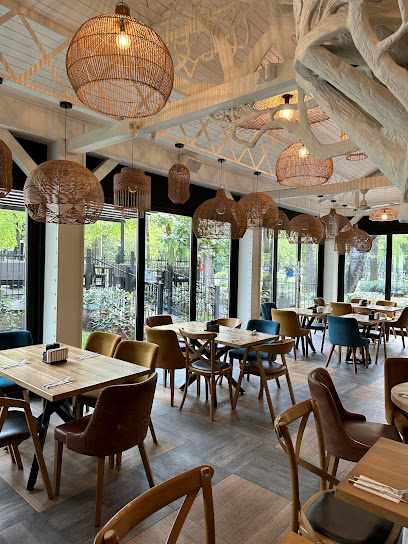
RESTAURANT Raia
Experience authentic Bulgarian cuisine in the heart of Plovdiv at Restaurant Raia - where tradition meets modern dining.
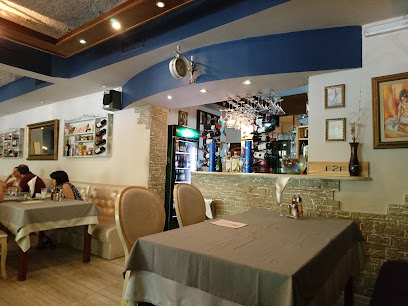
Markets, malls and hidden boutiques
Mall Plovdiv
Discover the ultimate shopping experience at Mall Plovdiv, where fashion meets flavor and entertainment awaits.
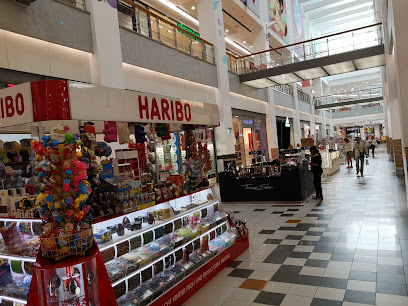
Retail Park Plovdiv
Discover Retail Park Plovdiv – a shopping paradise with diverse stores, delightful eateries, and a vibrant atmosphere for all visitors.
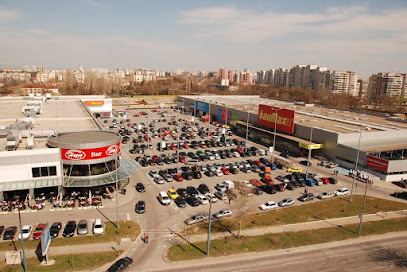
Nike Store
Explore the Nike Store in Plovdiv for the latest in athletic footwear and apparel, catering to all sports enthusiasts and fashion lovers.
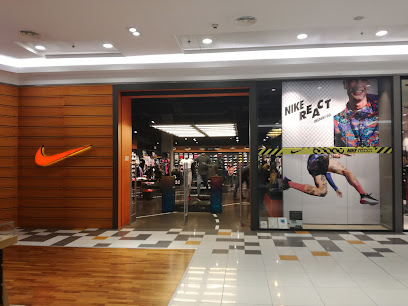
Meli-M
Explore Meli-M in Plovdiv for a unique shopping experience combining fashion, antiques, and music, all in one vibrant location.
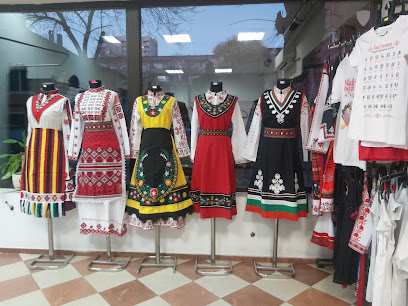
Antique Shop Plovdiv
Explore the Antique Shop in Plovdiv for a unique collection of vintage furniture, rare books, and historical collectibles in the heart of Bulgaria.
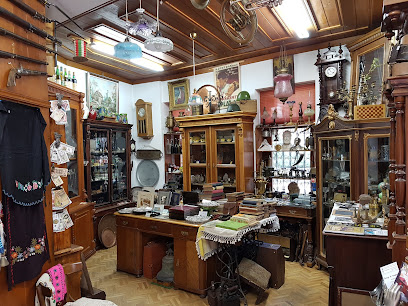
Магазин за народни носии - Фолклорна Магия
Explore Bulgaria's rich cultural heritage at Магазин за народни носии - Фолклорна Магия, Plovdiv's premier destination for traditional costumes and folk gifts.
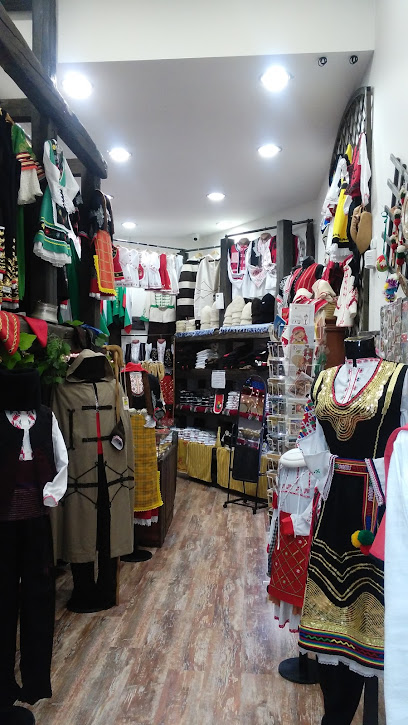
Shopping Mall
Explore a vibrant shopping haven in Plovdiv, offering a diverse selection of home goods in a modern and welcoming atmosphere.
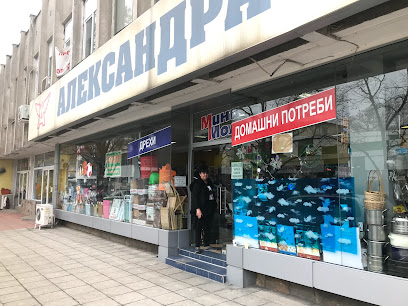
ANTIQUE SHOP PLOVDIV
Explore Antique Shop Plovdiv - A treasure trove of history and collectibles in the heart of Bulgaria's oldest city.
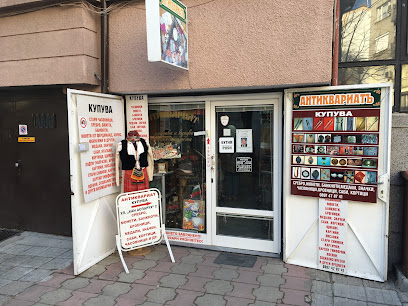
Bulgarian Souvenirs & Gifts
Explore the heart of Bulgarian culture at Bulgarian Souvenirs & Gifts in Plovdiv's Old Town, offering unique handcrafted treasures for every traveler.
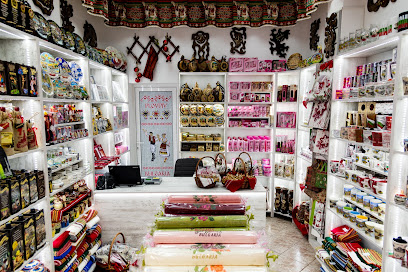
loveplovdiv
Explore artistic handicrafts and unique souvenirs in the vibrant heart of Plovdiv's Kapana district, where creativity and culture come alive.
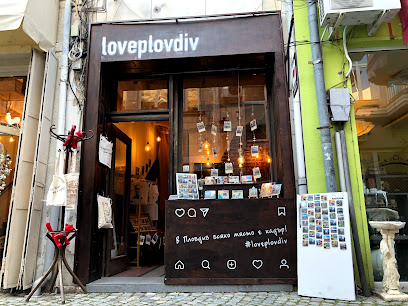
WAM CONCEPT STORE
Discover the artistic flair of Plovdiv at WAM Concept Store, blending fashion and music in the heart of the city’s creative district.
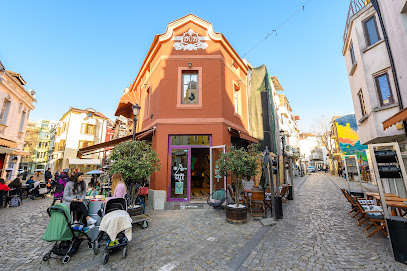
Sunday Habit Plovdiv
Explore unique local crafts and gifts at Sunday Habit, a charming store in the heart of Plovdiv that celebrates Bulgarian creativity.
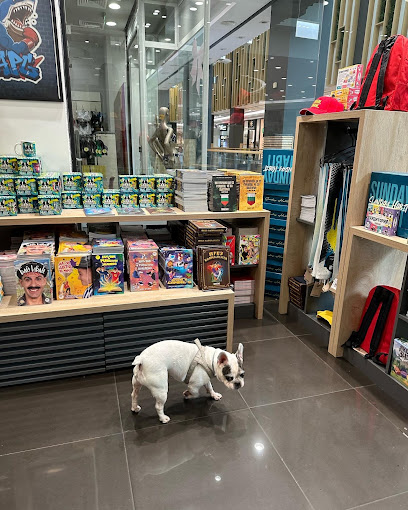
SOLO
Discover unique gifts and local crafts at SOLO, a charming gift shop in the heart of Plovdiv, Bulgaria, perfect for every traveler.
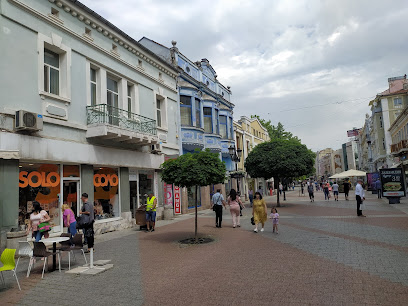
Plovdiv boutique
Explore the stylish offerings of Plovdiv Boutique, where contemporary fashion meets Bulgarian charm in the heart of Plovdiv.
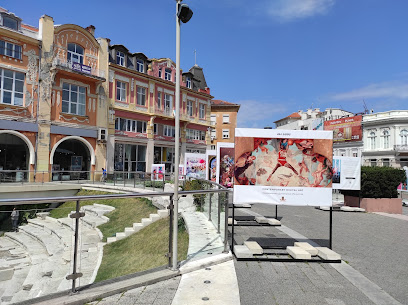
My Gift Shop Ltd. - Магазин за подаръци
Discover unique Bulgarian souvenirs at My Gift Shop Ltd. in Plovdiv, where tradition meets creativity in every carefully crafted gift.
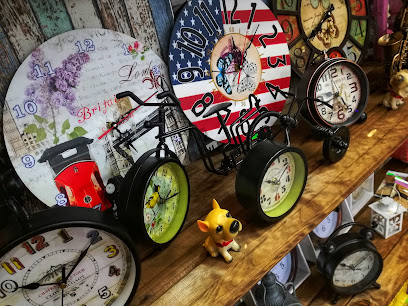
Essential bars & hidden hideouts
Morado Bar & Dinner
Discover Morado Bar & Dinner in Plovdiv – a lively spot for delicious food, refreshing drinks, and unforgettable nights.
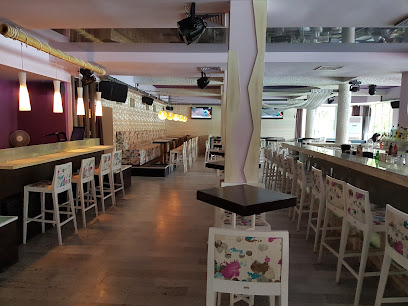
Котка и Мишка, Cat and Mouse Beer Bar
Discover the vibrant atmosphere and exceptional craft beer selection at Cat and Mouse Beer Bar in Plovdiv's artistic Kapana district.
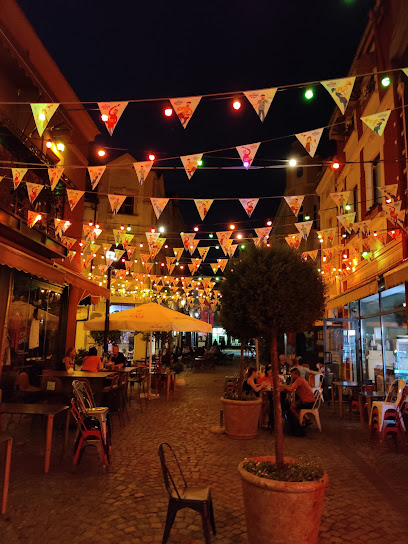
бар Фабрик (Fabric)
Explore the heart of Plovdiv's nightlife at бар Фабрик (Fabric), where vibrant atmospheres and refreshing drinks await every visitor.
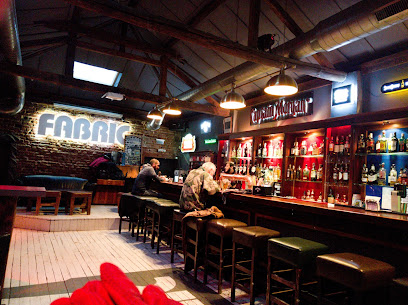
Quattro Piano Bar
Experience the vibrant nightlife of Plovdiv at Quattro Piano Bar, where live music meets an inviting atmosphere for an unforgettable evening.
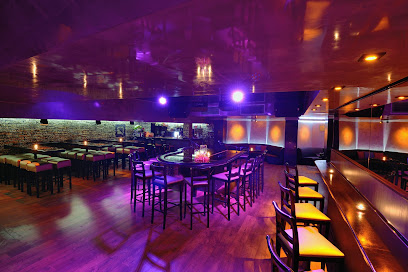
Piano Bar Sinatra
Experience the vibrant nightlife of Plovdiv at Piano Bar Sinatra, where live music and exquisite cocktails create an unforgettable evening.
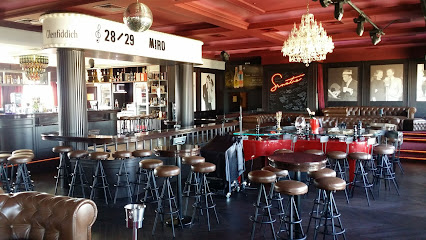
Bar The Post
Experience the vibrant nightlife of Plovdiv at Bar The Post, a cocktail bar known for its creative drinks and lively atmosphere.
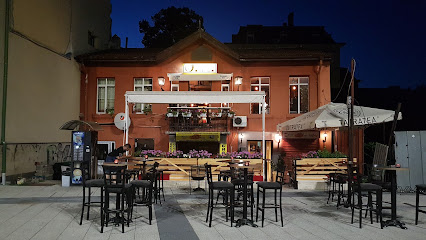
Qbar
Experience the heart of Plovdiv's nightlife at Qbar, where eclectic drinks meet a vibrant atmosphere in the artistic Kapana district.
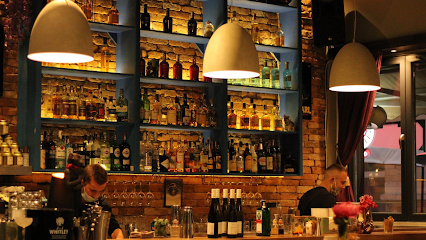
Piano bar Gatsby Plovdiv
Explore the vibrant nightlife of Plovdiv at Gatsby Piano Bar, where live music and stylish ambiance create unforgettable moments.
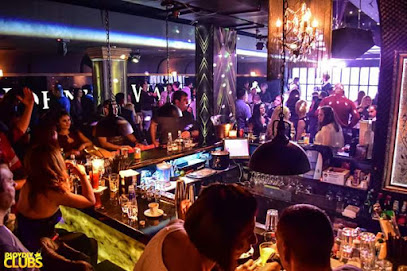
ANYWAY Social Bar
Experience the vibrant nightlife at ANYWAY Social Bar in Plovdiv's charming Kapana district, offering expertly crafted cocktails and a lively atmosphere.
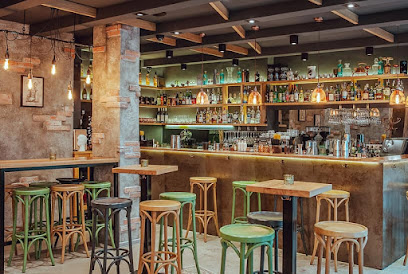
Temple Bar
Experience the lively atmosphere and diverse drink selection at Temple Bar, Plovdiv's premier spot for relaxation and socializing.
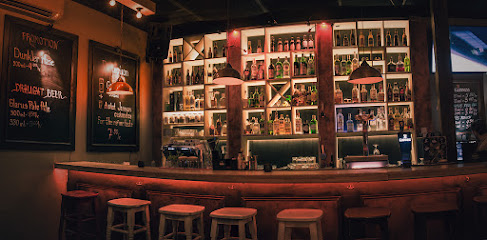
Cocktail Bar Noris
Experience the vibrant nightlife of Plovdiv at Cocktail Bar Noris, where expertly crafted cocktails meet an energetic atmosphere.
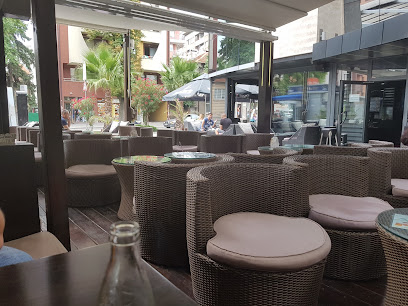
Barber&Cat Bar
Discover Barber&Cat Bar, a cocktail haven in Plovdiv's Kapana district, offering innovative drinks and a vibrant atmosphere for all cocktail enthusiasts.
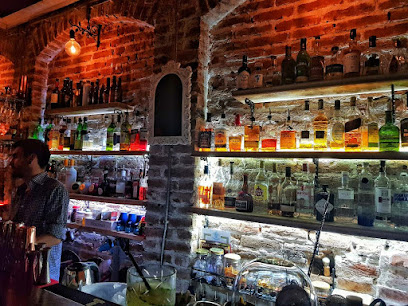
Judge O'Neills Irish Pub
Discover the authentic Irish experience at Judge O'Neills Pub in Plovdiv, where great food, drinks, and lively atmosphere await.
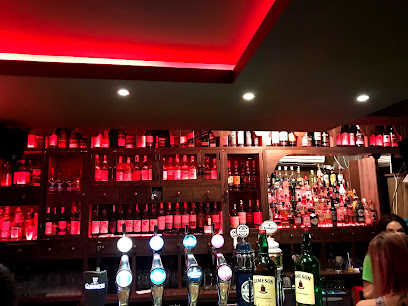
CoolDown
Discover the vibrant CoolDown Beer Hall in Plovdiv - a perfect blend of local brews, cozy atmosphere, and lively social scene.
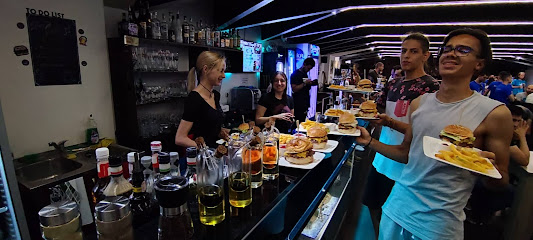
Local Phrases about Plovdiv Region
-
- HelloЗдравей
[Zdravey] - GoodbyeДовиждане
[Dovizhdane] - YesДа
[Da] - NoНе
[Ne] - Please/You're welcomeМоля
[Molya] - Thank youБлагодаря
[Blagodarya] - Excuse me/SorryИзвинявай
[Izvinyavay] - How are you?Как си?
[Kak si?] - Fine. And you?Добре. А ти?
[Dobre. A ti?] - Do you speak English?Говориш ли английски?
[Govorish li angliyski?] - I don't understandНе разбирам
[Ne razbiram]
- HelloЗдравей
-
- I'd like to see the menu, pleaseБих искал да видя менюто, моля
[Bih iskal da vida menuto, molya] - I don't eat meatНе ям месо
[Ne yam meso] - Cheers!На здраве!
[Na zdrave!] - I would like to pay, pleaseБих искал да платя, моля
[Bih iskal da platya, molya]
- I'd like to see the menu, pleaseБих искал да видя менюто, моля
-
- Help!Помощ!
[Pomosht!] - Go away!Отдели се!
[Otdeli se!] - Call the Police!Обадете полицията!
[Obedete politsiyata!] - Call a doctor!Обадете доктор!
[Obedete doktor!] - I'm lostЗагубен съм
[Zaguben sum] - I'm illБолен съм
[Bolen sum]
- Help!Помощ!
-
- I'd like to buy...Бих искал да купя...
[Bih iskal da kupya...] - I'm just lookingСамо гледам
[Samo gledam] - How much is it?Колко струва?
[Kolko struva?] - That's too expensiveТова е твърде скъпо
[Tova e tvurde skupo] - Can you lower the price?Можете ли да намалите цената?
[Mozhete li da namalite tsenata?]
- I'd like to buy...Бих искал да купя...
-
- What time is it?Колко е часът?
[Kolko e chasat?] - It's one o'clockЕдин час
[Edin chas] - Half past (10)Половина на (10)
[Polovina na (10)] - MorningСутрин
[Sutrin] - AfternoonСледобед
[Sledobed] - EveningВечер
[Vecher] - YesterdayВчера
[Vchera] - TodayДнес
[Dnes] - TomorrowУтре
[Utre] - 1едно
[edno] - 2две
[dve] - 3три
[tri] - 4четири
[chetiri] - 5пет
[pet] - 6шест
[shest] - 7седем
[sedem] - 8осем
[osem] - 9девет
[devet] - 10десет
[deset]
- What time is it?Колко е часът?
-
- Where's a/the...?Къде е...
[Kade e...] - What's the address?Какъв е адресът?
[Kakav e adresat?] - Can you show me (on the map)?Можете ли да ми покажете (на картата)?
[Mozhete li da mi pokazhete (na kartata)?] - When's the next (bus)?Кога е следващият (автобус)?
[Koga e sledvashtiyat (avtobus)?] - A ticket (to ....)Билет (до ...)
[Bilet (do ...)]
- Where's a/the...?Къде е...
History of Plovdiv Region
-
Plovdiv, one of the oldest cities in Europe, was originally a Thracian settlement known as Eumolpias. The Thracians, an ancient Indo-European people, inhabited the region around 4000 BC. They left behind significant archaeological sites, including burial mounds and sacred sanctuaries, showcasing their rich culture and intricate craftsmanship.
-
In 46 AD, the Roman Empire annexed the region and renamed the city Philippopolis after Philip II of Macedon. During this period, Plovdiv flourished as a major Roman city. Impressive remnants such as the Roman Theatre, Roman Stadium, and the Ancient Forum remain today, illustrating the architectural prowess and urban planning of the time.
-
Throughout the medieval period, Plovdiv was a contested city, falling under Byzantine, Bulgarian, and Crusader control at various times. The 9th-century construction of the Nebet Tepe Fortress and the 11th-century Dzhumaya Mosque highlight the city's strategic importance and the diverse cultural influences it experienced.
-
Plovdiv fell under Ottoman rule in the 14th century and remained part of the Ottoman Empire for nearly five centuries. This era left a lasting impact on the city's architecture, cuisine, and culture. Notable structures from this period include the Dzhumaya Mosque, built in the 15th century, and the Old Plovdiv houses, which feature distinctive Ottoman architectural elements.
-
The 18th and 19th centuries marked the Bulgarian National Revival, a period of cultural and educational renaissance. Plovdiv was a major center of this movement, fostering the development of Bulgarian literature, arts, and education. The Old Town of Plovdiv is filled with beautifully preserved houses from this era, such as the Balabanov House and the Kuyumdzhieva House, which now serve as museums showcasing the city's vibrant cultural heritage.
-
In 1878, Plovdiv was liberated from Ottoman rule and became the capital of the autonomous region of Eastern Rumelia. Following the Unification of Bulgaria in 1885, Plovdiv continued to grow as a major economic and cultural hub. The city’s modern development is reflected in its blend of historic and contemporary architecture, bustling markets, and vibrant arts scene.
-
In 2019, Plovdiv was designated as the European Capital of Culture, a testament to its rich historical and cultural heritage. Throughout the year, the city hosted numerous events, exhibitions, and performances, celebrating its diverse history and modern-day cultural achievements. This accolade further established Plovdiv as a key destination for cultural tourism in Europe.
Plovdiv Region Essentials
-
Plovdiv Region is well-connected and can be reached by various means of transportation. The nearest international airport is Plovdiv Airport, located about 12 kilometers southeast of Plovdiv city. Sofia Airport, Bulgaria’s largest airport, is another option, about a 1.5-hour drive from Plovdiv. From either airport, you can take a taxi, bus, or rent a car to reach the region. Plovdiv is also accessible by train and bus from major Bulgarian cities and neighboring countries.
-
Within Plovdiv Region, transportation options include buses, taxis, and car rentals. Plovdiv city has an efficient public bus system that covers most parts of the city. For intercity travel, regional buses connect Plovdiv to surrounding towns and villages. Taxis are readily available and relatively inexpensive. Renting a car is a convenient option for exploring the region at your own pace.
-
The official currency in Bulgaria is the Bulgarian Lev (BGN). Credit and debit cards are widely accepted in hotels, restaurants, and shops in Plovdiv city, but it is advisable to carry some cash, especially when traveling to smaller towns and rural areas. ATMs are plentiful in Plovdiv and other major towns in the region. Currency exchange services are available at banks and exchange bureaus.
-
Plovdiv Region is generally safe for tourists. However, as with any travel destination, it is important to take standard precautions. Avoid walking alone at night in unfamiliar areas and keep an eye on your belongings in crowded places. While Plovdiv city is safe, be cautious in less populated or poorly lit areas. There are no specific high-crime areas targeting tourists, but staying vigilant is always wise.
-
In case of emergency, dial 112 for immediate assistance. This number connects you to police, medical, and fire services. Plovdiv city has several hospitals and clinics that provide emergency medical care. Pharmacies are available throughout the region for minor health issues and over-the-counter medications. It is recommended to have travel insurance that covers medical emergencies.
-
Fashion: Do dress comfortably but modestly, especially when visiting religious sites. Avoid overly revealing clothing. Religion: Do respect local customs and traditions. Cover your head and shoulders when entering churches and monasteries. Public Transport: Do be respectful and offer your seat to elderly passengers. Avoid loud conversations and eating or drinking on public transport. Greetings: Do greet people with a handshake or a friendly nod. A simple 'Zdravei' (Hello) is appreciated. Eating & Drinking: Do try local dishes and accept hospitality graciously. Don’t refuse food or drink offerings, as it may be considered impolite.
-
To experience Plovdiv Region like a local, visit the Kapana Creative District in Plovdiv city, known for its vibrant arts scene, cafes, and shops. Explore the local markets for fresh produce and traditional Bulgarian goods. Engage with locals, as they are often friendly and eager to share stories about their culture and history. Don’t miss visiting the ancient Roman Theatre and the Old Town of Plovdiv for a taste of the region’s rich heritage. For a unique experience, take a walk along the Maritsa River or enjoy a wine tasting tour in one of the region's vineyards.
Trending Landmarks in Plovdiv Region
-
Ancient Theatre of Philippopolis
-
“Tsar Simeon Garden” Park
-
Singing Fountain
-
Ancient Stadium of Philipopolis
-
Asen's Fortress
-
Youth Hill
-
Old Town of Plovdiv
-
International Fair Plovdiv
-
Nebet Tepe
-
Museum of Natural Sciences
-
Sahat Tepe - Danov hill
-
Regional Ethnographic Museum Plovdiv
-
Free Plovdiv Tour
-
Bishop’s Basilica of Philippopolis
-
Monument of Unification
Nearby Cities to Plovdiv Region
-
Things To Do in Stara Zagora
-
Things To Do in Gabrovo
-
Things To Do in Kavala
-
Things To Do in Pleven
-
Things To Do in Serres
-
Things To Do in Alexandroupoli
-
Things To Do in Ruse
-
Things To Do in Shumen
-
Things To Do in Thessaloniki
-
Things To Do in Burgas
-
Things To Do in Craiova
-
Things To Do in Canakkale
-
Things To Do in Kamenica
-
Things To Do in Niš
-
Things To Do in Gjilan













